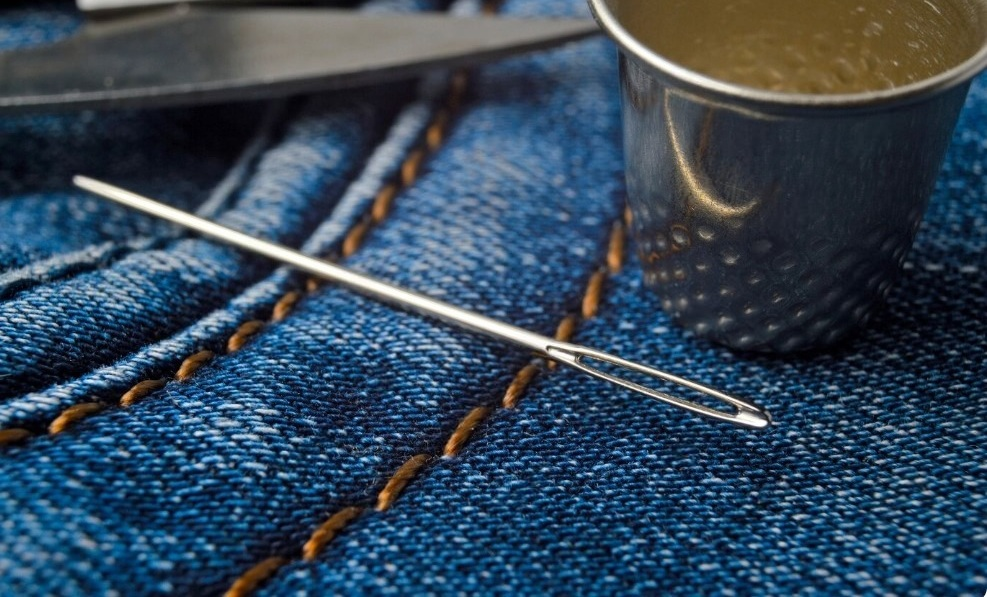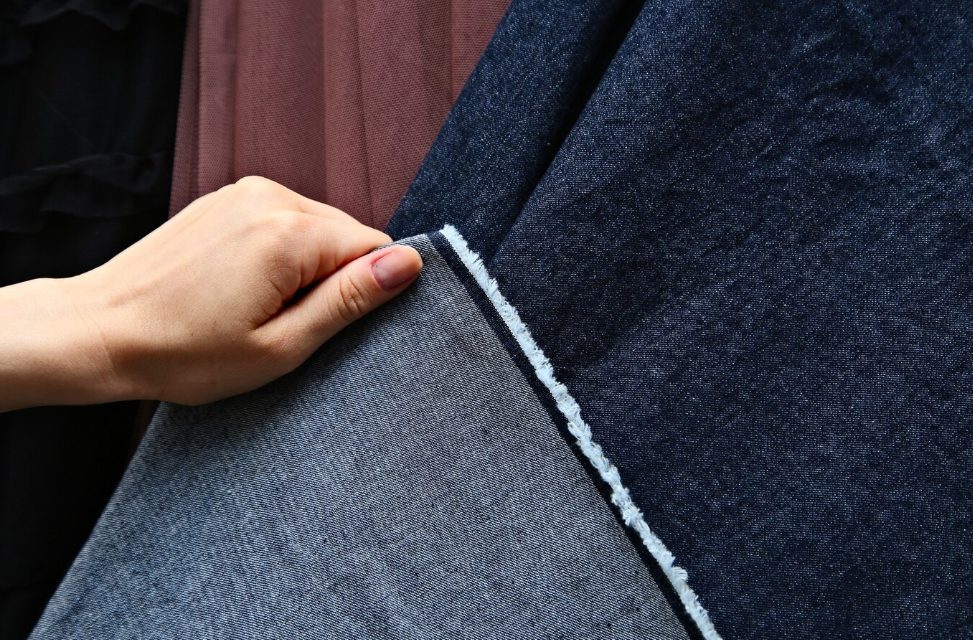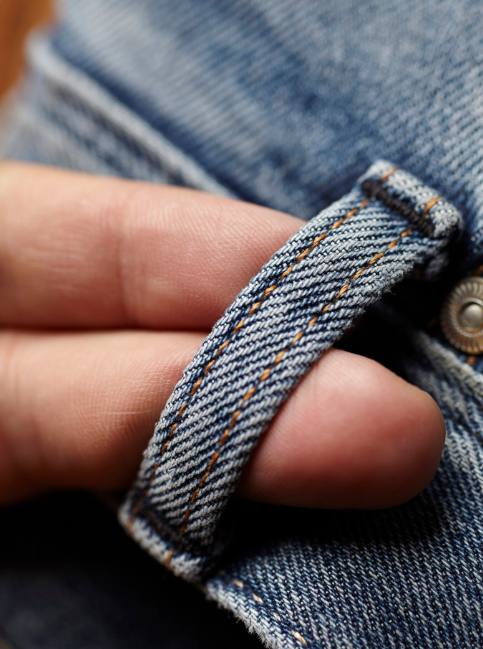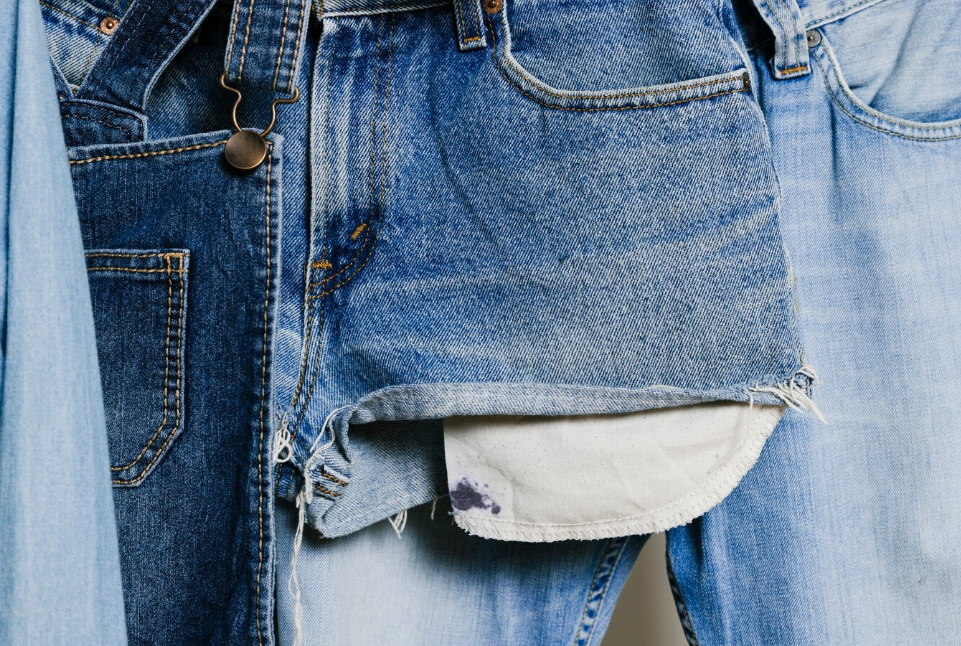
When it comes to creating custom jeans that are durable, comfortable, and unique, the choice of fabric plays a pivotal role. Among the various fabric options, selvage denim stands out as a premium choice for those who demand the best in quality and craftsmanship. Unlike regular denim, selvage denim is woven using traditional shuttle looms, giving it a distinctive edge and a higher level of durability. This article explores what selvage denim is, its advantages for custom jeans, and why it should be the fabric of choice for anyone looking to invest in high-quality, custom-made denim.
Selvage denim refers to denim fabric woven on a traditional shuttle loom that creates a self-finished edge, known as the "selvage" edge. This edge is tightly woven, which prevents it from fraying, ensuring the longevity of the fabric. Selvage denim is known for its superior craftsmanship and durability, making it a popular choice for high-end, custom jeans.
The origins of selvage denim date back to the 19th century when it was first created by shuttle looms. Unlike modern looms, shuttle looms produce narrower rolls of denim with finished edges, resulting in cleaner seams and a more durable fabric. Over time, selvage denim became synonymous with premium, handcrafted denim products, especially in the era before mass production took over. Today, selvage denim remains a staple in high-quality denim production.
The primary difference between selvage denim and regular denim is the production method. While selvage denim is made using a shuttle loom that produces a clean, tightly woven edge, regular denim is often woven on a projectile loom, which results in frayed edges. This difference in weaving techniques gives selvage denim its distinct edge and high-end quality.

The self-edge design of selvage denim is one of its most distinctive features. The tightly woven edges enhance the durability of the fabric, ensuring the jeans' longevity. This design also adds to the aesthetic appeal, as the raw edges are often visible on the inside of the jeans, showcasing the craftsmanship involved.
Selvage denim is more durable than regular denim because of its dense weave and strong edges. This makes it ideal for custom jeans, as it can withstand regular wear and tear, ensuring a longer lifespan compared to jeans made from regular denim.
Despite its sturdy nature, selvage denim offers excellent comfort. The fabric softens over time, molding to the wearer's body for a personalized fit. This makes it particularly appealing for custom jeans, where comfort is key.

Perfect Fit
Because of its high quality and rigidity, selvage denim helps create perfectly fitted custom jeans that are tailored to the customer’s body. The durability ensures that the jeans retain their shape over time, even after multiple washes, making them ideal for customers who want a long-lasting, well-fitted product.
Premium Look and Feel
The unique edge and high-quality finish of selvage denim give custom jeans a sophisticated, premium look that is difficult to achieve with regular denim. This adds a level of refinement and exclusivity to each pair of jeans.
Personalization
One of the key benefits of using selvage denim for custom jeans is the ability to personalize every detail. From the perfect fit to the selection of color, wash, and finish, selvage denim allows customers to create jeans that are uniquely their own, ensuring no two pairs are alike.
| Feature | Selvage Denim | Regular Denim |
| Weaving Method | Shuttle loom, creates a self-finished edge (selvage) | Projectile loom, frayed edges |
| Fabric Quality | Denser, more durable fabric | Lighter, less durable fabric |
| Edge Finish | Tightly woven, clean edge | Unfinished, raw edges |
Selvage denim’s distinctive self-edge design gives custom jeans a clean, finished look, making them stand out with a premium appearance. Regular denim lacks this distinctive edge and often appears less refined in comparison.
Selvage denim tends to be more expensive due to the slower, more intricate production process. However, its durability, quality, and unique design justify the higher cost. When compared to regular denim, selvage denim offers better long-term value for custom jeans.

Choosing the right thickness and texture of selvage denim depends on the desired look and feel. Lighter denim is ideal for summer jeans, while heavyweight denim is perfect for winter jeans that need added warmth and durability.
Selecting the right color, wash, and style of selvage denim is essential for creating the perfect custom jeans. Whether you prefer a raw, unwashed look or a faded, pre-washed design, the possibilities are endless.
When creating custom jeans or custom formal wear, it’s essential to incorporate the right stitching, buttons, and design elements. Opt for unique finishes like contrast stitching or copper rivets to enhance the overall look of your custom jeans. For formal wear, sleek details like matte or polished metal buttons and understated stitching will add a subtle touch of elegance, ensuring the jeans or pants maintain their formal appeal without sacrificing comfort.

The production of selvage denim typically results in less waste compared to regular denim, as it is made with a more traditional and sustainable weaving process. Additionally, selvage denim tends to last longer, reducing the need for frequent replacements.
In comparison to fast fashion denim, selvage denim is a more eco-friendly option. It’s produced using fewer chemicals and less energy, making it a more sustainable choice for environmentally conscious consumers.
Selvage denim offers the perfect combination of durability, comfort, and premium appearance, making it the ideal fabric for custom jeans. Whether you’re a custom apparel manufacturer seeking to create a unique fit or a consumer looking for personalized design, selvage denim ensures high-quality craftsmanship and long-lasting wear. Additionally, its sustainable production process makes it an eco-friendly choice, offering a refined and durable alternative to regular denim. For manufacturers and designers, choosing selvage denim allows you to deliver a product that not only meets the demand for quality but also elevates the overall customer experience.
Yes, selvage denim is generally more expensive than regular denim due to the more labor-intensive production process and higher quality of the fabric. The use of traditional shuttle looms, which produce the tight self-edge, results in higher production costs, but the long-lasting durability and unique qualities make it worth the investment for custom jeans.
Caring for selvage denim involves a few key steps:
· Washing: Wash selvage denim less frequently to preserve its structure. When washing, turn the jeans inside out to prevent fading.
· Drying: Air-dry your jeans to prevent shrinking and maintain their shape.
· Breaking In: Selvage denim tends to soften over time as it molds to your body, so wear them regularly to break them in.
Yes, selvage denim can be used for a wide range of custom jeans styles, from classic straight-leg jeans to more fashion-forward skinny or tapered fits. Its versatile nature makes it an excellent choice for any custom jeans, as it provides a durable, high-quality fabric that molds to different cuts and styles.
Yes, selvage denim is more environmentally friendly than mass-produced denim. The production process is more sustainable, as it uses less energy and results in less waste. Additionally, selvage denim tends to last longer, which reduces the need for frequent replacements. Choosing selvage denim is a more eco-conscious choice compared to fast fashion alternatives.
Absolutely! While selvage denim is most commonly used for jeans, it can also be used for other custom clothing items such as jackets, skirts, and even accessories like bags or aprons. The durability and unique look of selvage denim make it a great option for creating high-quality, long-lasting apparel beyond just jeans.